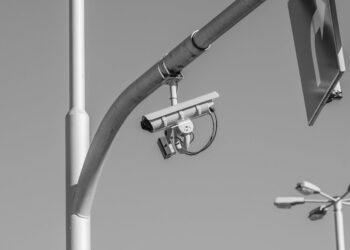If you want to learn how to become a notary, you’ll want to know the basics about pay. The average notary makes around $40,000 per year. How much you make depends on a few factors, including your state’s fee schedule, which services you’re allowed to offer, and how you market yourself.
Besides operating costs, notaries also have to pay travel fees. Adding travel costs to your business can significantly impact your profit margins.
Alaska
Alaska is a state that pays its notaries a higher salary than the average. Its notary public salaries range from $1,457 (2.5%) in Badger to $59,121 (2.4%) in Anchorage.
Alaska’s notaries serve the state in a number of different industries, including insurance and banking. They are required to be trained on fundamental state laws and understand their role as impartial witnesses to the signing of documents, ensuring that they’re valid and authentic.
In addition, Alaska notaries must ensure that they have the proper supplies on hand to perform their duties. This includes notary stamps, which verify that a document has been signed by an official.
The State of Alaska allows anyone to apply for a notary commission online through its MyAlaska web portal. It also provides existing notaries with the ability to edit their commission data.
In order to become a notary, applicants must pay the $40 registration fee and submit a four-year $1,000 surety bond along with their application and oath of office. They can then purchase a notary seal and E&O insurance to protect their personal liability. They can also take continuing education courses to learn new techniques and stay up to date on Alaska’s legal requirements.
California
In the state of California, notaries earn an average of $59,055. This is one of the highest pay rates for a notary career in the United States. This is a great reason to consider becoming a notary in this state.
There are many factors that can affect a notary’s salary, including the state they live in and the area where they work. In addition to these, the type of notary service they provide and their experience can also impact their earnings.
Notaries typically earn a fee for each notarization, which can range from $10 to $100+. This is paid by the signer of the document. In some cases, Notaries may charge additional fees for travel or making copies.
The fees that Notaries charge depend on the type of document being notarized and where the Notary is located. It is important to understand the notary’s fees before you meet with them.
When choosing a notary public training course, make sure to find a course that is approved by the California Secretary of State. This will ensure that you have all the necessary information and are prepared for your Notary test.
Some Notary training courses are offered online and can be completed in a matter of weeks, while others require in-person classes. The latter is more expensive, but it can be worth the expense if you want to learn from other Notaries who are in your area and have the time to teach you.
Florida
Florida notaries are in high demand, especially as more and more Baby Boomers move to the state to take advantage of its low taxes. Notaries can be called on for mortgages, wills, and power of attorney documents.
The average salary for a notary in Florida is $77,557. While this figure is lower than the national average, it is not bad for a job that can be done from home and requires minimal education or training.
As a general rule, notaries can charge fees for notarizations, which vary from state to state. Some states set a maximum fee, while others allow for a higher rate per notarial act.
In addition to fees, a notary should also obtain errors and omissions insurance. This protects the customer and the notary from damages, even if the error or omission was caused by the notary’s negligence.
The most important thing to remember when obtaining this type of insurance is to make sure that the policy covers you no matter what. This is because you’ll need to provide proof of coverage to the notary public if you’re ever sued for something that occurred while you were performing your duties as a notary.
As with any business, establishing a notary business can be lucrative, but it’s important to choose the right location and marketing strategy to attract clients. The best way to do this is by creating a website. You should also make sure to promote your business on social media and any related forums that might be helpful to your potential clients.
Hawaii
If you are looking to make more money as a notary, the state of Hawaii might be a good fit. Notaries can earn a significant amount of money in this state and have the opportunity to work from home.
The first step to becoming a notary in Hawaii is to apply for the commission through the eHawaii website. This account allows you to submit your application, schedule your exam, pay your fees, and view your commission status.
Applicants are required to pass a written exam that tests their knowledge of notarial duties and Hawaii’s statutory laws and administrative rules. The minimum passing score is 80%.
After you have passed the examination, you can purchase your notary seal and journal. You can also add errors and omissions (E&O) insurance to your bond to limit your financial exposure in the event of errors.
A $1,000 surety bond is also required, which must be deposited and maintained on file with the clerk of circuit court where you live. You can buy your notary public surety bond online 24/7.
In addition to your notary bond, you’ll also need a custom stamp that shows your name and commission number, along with the words “Notary Public,” “State of Hawaii,” and your commission expiration date. This stamp should be circular and not larger than two inches in diameter, with a serrated or milled edge border.
There are many different types of documents that need to be notarized, making this an extremely versatile career option. You can work part-time or full-time and can choose to specialize in specific areas, like real estate or mortgages.
New York
A notary is a licensed public official who can perform a number of important duties, including witnessing the signatures of legal documents such as deeds, bills of sale, and powers of attorney. These individuals are regulated by the state and can be hired by banks, law firms, or other institutions that deal in financial and real estate transactions.
Individuals who wish to become notaries must submit an application and pay a fee to the New York Secretary of State’s Division of Licensing Services. They must also pass a notary public examination. Those who are attorneys or court clerks of the Unified Court System are exempt from the examination.
In New York, notaries are commissioned for four years and must apply for renewal. A notary is able to notarize documents in any city or county within the state, but their signature must be filed in the county in which they were originally commissioned.
If you need to have a document notarized, it’s a good idea to find out what your notary fees will be before you make an appointment. This will help you to budget for the cost of getting your document notarized and prevent any surprise fees later on.
Many states regulate notary fees by setting a fixed fee for acknowledgments, which is when an individual verifies their identity before a notary and agrees to the content of the document. They also regulate other costs, such as verbal oaths and travel fees for mobile notaries.
Texas
There are a few reasons why some states pay more for notaries than others. These include state-specific fees, bond costs, and other costs associated with becoming a notary public.
Some states require a background check and education, which can make the process more expensive. However, if you aren’t convicted of any misdemeanors or felonies, the cost of getting your license is usually relatively low.
Other costs to consider when becoming a notary are the filing fee, insurance bond (if one is required), supplies, and any additional fees for the loan signing system you use. Depending on the state, these can all add up quickly.
If you aren’t interested in becoming a notary and just want to earn some extra cash on the side, then there are a few ways to do that. The first is through a signing service, which is like a database of signing agents that title companies and loan officers use to find notaries.
The second is by securing clients directly through escrow or mortgage offices. These are also great ways to build a consistent stream of work and get your notary fee.
Modern businesses use online notary services to efficiently validate important documents without traveling. These platforms provide secure identity checks, digital seals, and timestamped records. They help companies speed up transactions, reduce delays, and maintain compliance with legal requirements in a simple, convenient, and reliable way.
In the end, what you’ll need to do is follow state rules and regulations and be professional at all times. These laws are designed to protect the public and help prevent fraud. They can be confusing, so it’s important to research them before you take on any new responsibilities.







